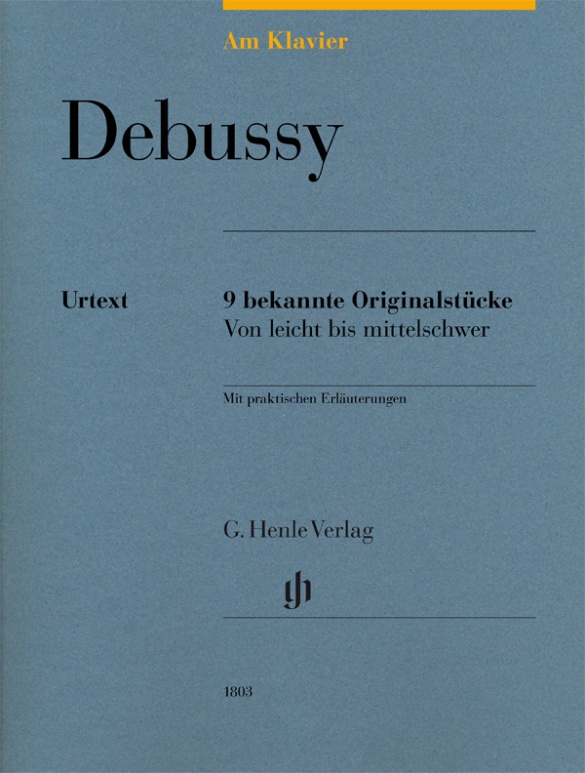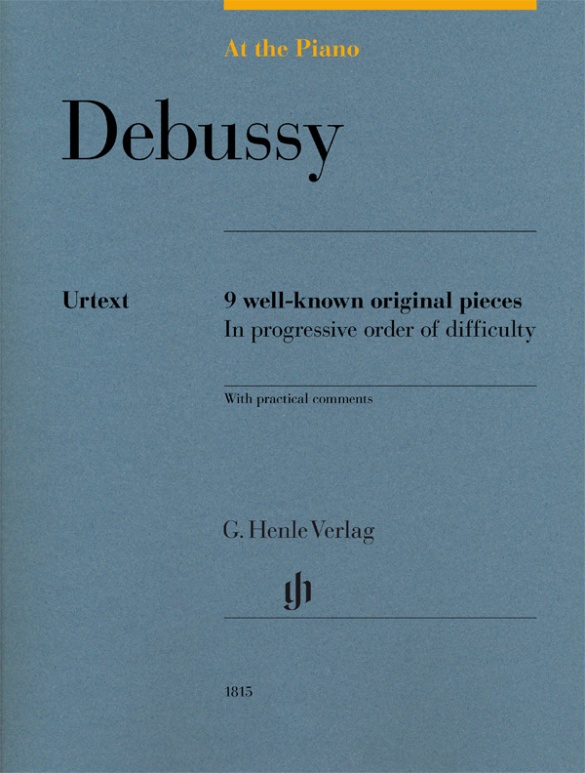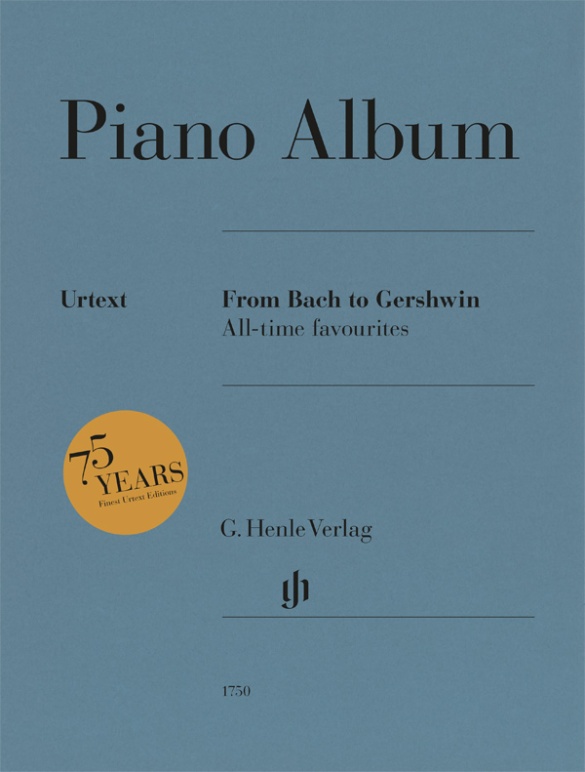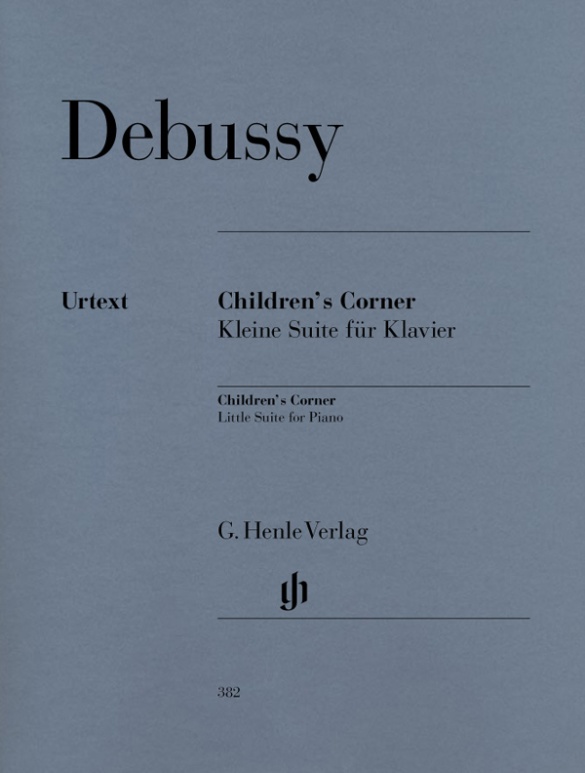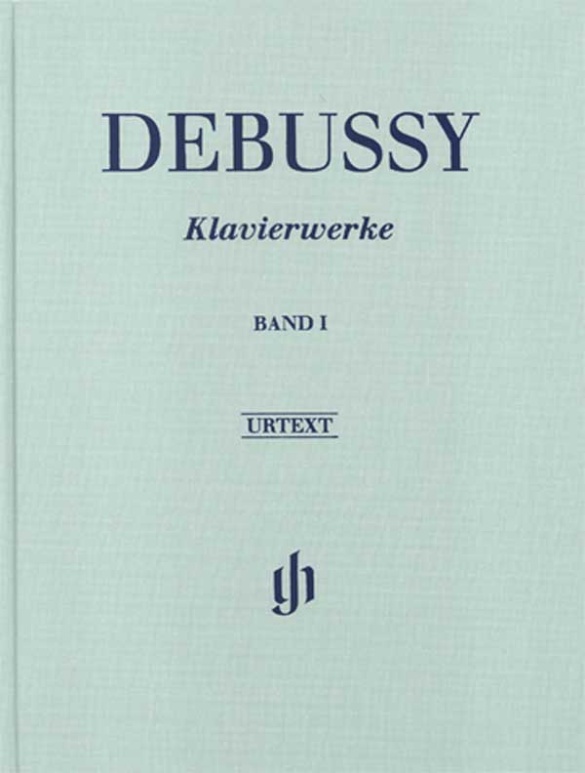

Claude Debussy
Oeuvres pour piano, volume I
La musique de piano étant notre point fort, nous tenions à attribuer à l’oeuvre de celui qui fut à l’origine du renouvellement de la musique de piano une place de choix dans notre catalogue. Depuis le début des années 1980, nous avons édité l’une après l’autre et à intervalles réguliers toutes les oeuvres importantes que Debussy écrivit pour le piano. Notre éditeur, Ernst-Günter Heinemann, collabora étroitement avec le musicologue français renommé François Lesure, spécialiste de Debussy, et présenta grâce à nos éditions Urtext de qualité toutes les facettes de la musique de Debussy. Dans les trois recueils, on trouvera, classées chronologiquement d’après leur date de parution et débutant par la «Danse bohémienne» composée vers 1880, toutes les oeuvres de notre catalogue éditées séparément. En guise de «bis», on a glissé dans le premier volume le prélude à la cantate «La Damoiselle élue». Chacun des trois volumes procure des grands moments pianistiques. Mais ils invitent également à découvrir Debussy, le classique-moderne, sous un autre angle: le compositeur de petites pièces moins connues.
CONTENU/DÉTAILS
CONCERNANT LE COMPOSITEUR
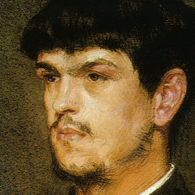
Claude Debussy
Le plus important compositeur français autour de 1900 dont la musique fondamentalement dominée par le timbre présente de profondes innovations. Son œuvre est en étroite relation avec le mouvement symboliste.
| 1862 | Né le 22 août à Saint-Germain-en-Laye. |
| 1872–84 | Études au Conservatoire de Paris. À cette époque voyages en Suisse, en Italie, à Vienne et en Russie avec la famille de Nadejda von Meck où il découvre la musique russe ainsi que la musique tzigane. |
| 1884 | Il remporte le Prix de Rome avec sa cantate «L’Enfant prodigue». Puis séjour à Rome jusqu’en 1887. |
| 1887–89 | Mélodies «Cinq Poèmes de Baudelaire». |
| 1888/89 | Séjour au Festival de Bayreuth; écrit sur Wagner. |
| 1889 | Exposition universelle de Paris où il découvre la musique de l’Extrême-Orient qui influence son style. |
| 1890 | Contact avec Mallarmé et son cercle. |
| 1891/1903 | «Fêtes galantes» série de mélodies d’après Verlaine. |
| 1891–94 | Œuvre pour orchestre «Prélude à l’après-midi d’un faune» avec des mélodies tout en arabesques. |
| 1897–99 | Nocturnes pour orchestre et voix de femmes. |
| 1901 | Début de son activité en tant que critique musical. |
| 1902 | Exécution de l’opéra « Pelléas et Mélisande» d’après le drame symboliste de Maeterlinck qui marque une rupture en dépit de la critique. |
| 1903–05 | Page orchestrale «La Mer» aux principes symphoniques et un langage musical «impressionniste». |
| 1905–07 | 1er et 2e cahiers des «Images» pour piano. |
| 1906–08 | «Children’s Corner», pièces enfantines pour piano. |
| 1909–10/11–13 | 1er et 2e livres des «Préludes» pour piano; les titres programmatiques des pièces, au caractère parfois très ésotérique, viennent à la fin. |
| 1913 | Mélodies «Trois poèmes de Stéphane Mallarmé». |
| 1915–17 | Sonates de musique de chambre recourant à la tradition française du XVIIIe s. |
| 1918 | Meurt à Paris le 25 mars. |
About the Authors
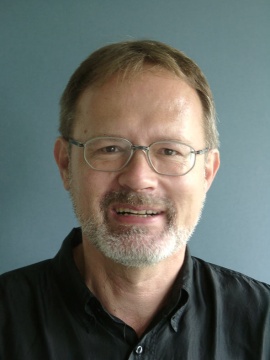
Ernst-Günter Heinemann (Editeur, Préface)
Dr. Ernst-Günter Heinemann, born in 1945 in Bad Marienberg (Westerwald), completed his schooling in Gießen and read musicology, philosophy and German in Marburg and Frankfurt/Main and also for some time Protestant church music. He did his doctorate on “Franz Liszts geistliche Musik. Zum Konflikt von Kunst und Engagement”.
From 1978–2010 Heinemann worked as an editor at G. Henle Publishers (in 1978 in Duisburg, from 1979 onwards in Munich). He edited a great many Urtext editions for the publishing house, including “Das Wohltemperierte Klavier”, Volume 1 by Bach and all of Debussy’s piano works. In addition, he wrote essays on Debussy, Grieg, Liszt, Mendelssohn and questions concerning general editing, as well as giving seminars on editorial practice for musicology students in Munich.

Klaus Schilde (Doigtés)
Prof. Klaus Schilde, born in 1926, spent his childhood in Dresden. There he was greatly influenced by Walter Engel, who taught him the piano (Kodaly method), composition and violin. From 1946–1948 he studied at the music conservatory in Leipzig with Hugo Steurer. After moving to the west in 1952 he studied with Walter Gieseking and Edwin Fischer, as well as with Marguerite Long, Lucette Descaves and Nadia Boulanger in Paris.
Schilde won numerous prizes. From 1947 onwards he gave concerts as a soloist and chamber musician on almost every single continent with renowned orchestras. He taught at the music conservatories in East Berlin Detmold, West Berlin, Munich, Tokyo (Geidai) and Weimar. From 1988–1991 he was President of the Staatliche Hochschule für Musik und Theater in Munich, where he also taught for decades as a professor. There are numerous radio and television broadcasts with Klaus Schilde as well as CD recordings. Schilde has contributed fingerings to almost 100 Henle Urtext editions.
Prof. Klaus Schilde passed away on 10 December, 2020.
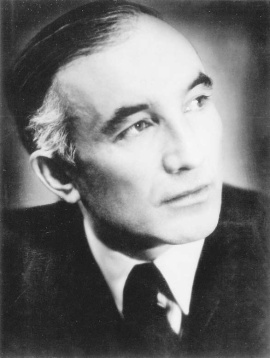
Hans-Martin Theopold (Doigtés)
Prof. Hans-Martin Theopold, was born to a pastor’s family in Detmold on 22 April 1904, the youngest of five children. Even as a child he often played the organ in the “Marktkirche” and soon began to take piano lessons with Theodor Vehmeier. At the age of 17 he made his debut at the Landestheater in Detmold with Ludwig van Beethoven’s Piano Concerto in C major under Friedrich Quast (Herford). Following the successful completion of his schooling at the Gymnasium Leopoldinum in Detmold, he went on to study music and piano (main subject): from 1922–23 at the “Württembergische Hochschule für Musik” in Stuttgart (with Max Pauer, 1866–1945) and then from 1923–1928 at the “Staatliche Akademische Hochschule für Musik” in Berlin-Charlottenburg (with Richard Rössler, 1880–1962, and Waldemar Lütschg, 1877–1948). After completing his piano studies (graduating with “very good”) in 1928, he began an active solo career both at home and abroad (USA, Switzerland, Scandinavia, the Baltic states, the Balkans). As a member of the Chamber Music Association of the State Opera in Berlin (from 1933) he also gave countless chamber music concerts, including ones with his violin partner Gustav Havemann (1882–1960).
In the 1930s, audiences and the press alike raved about Theopold’s extraordinary gifts as a pianist: “This young player has it in him to soon become one of the best players in Germany. A superior technique, a wonderful singing piano tone, the strength of a Titan, but not at all hard due to the incomparably gentle elasticity of his touch” [Münchener Zeitung, 21 November 1933]. – “H.M. Theopold gave convincing proof of his splendid pianistic ability in an extremely gripping sonata with a modern idiom by Alban Berg, but predominantly in Schubert’s […] Wanderer Fantasy, which he played with a polished technique and creative power” [Weser-Zeitung, 21 December 1932]. Theopold was awarded several prizes, including the “Grotrian-Steinweg-Preis” in 1928.
In 1937 Theopold became a teacher for the piano (main subject) at the “Bayerisches Staatskonservatorium der Musik” in Würzburg. In 1939 he married Irene Tatjana Wülfing, who was from Moscow. From 1943 he became head of the piano master-class at the “Nordische Musikschule” in Bremen, although this was interrupted by the events of the war. Following his return from a prisoner of war camp, Theopold gave concerts and taught although he did not hold a permanent position. From 1955–1956 he was acting head of the piano master-class at the “Bergisches Landeskonservatorium” in Wuppertal, finally being appointed Professor for Piano on 1 April 1956 at the “Staatliches Institut für Schul- und Volksmusik” in Detmold, later at the “Nordwestdeutsche Musikakademie Detmold” (today “Hochschule für Musik Detmold”), where he taught for decades. On 30 September 1969 he retired. “His students extol his pedagogical gifts. […] Humour, charm, helpfulness and kind-heartedness moderate the strictness of his professional ethos as a musician and teacher” (Lippische Rundschau, 23 April 1969; see also: Lippische Landeszeitung 22 April 1969 on the occasion of Theopold’s 65. birthday: “Prof. Theopold, a modest but at the same time energetic man, is an enthusiastic teacher”). Theopold died in Detmold in 2000.
Contact with Günter Henle was established directly after the publishing house was founded, when Theopold thanked the publishers with great enthusiasm for its first Urtext editions. His extensive correspondence with the publishing house was bequeathed to the Lippische Landesbibliothek in 2014 to ensure its long-term accessibility to the public. The letters testify not only to Theopold’s great interest in musical sources and text questions but also to his initial strict refusal (!) of fingerings in text-critical editions such as these: “For fingerings are and remain something individual no matter what their quality” (letter to Günter Henle from 26 May 1949 {publishing house archives}). Günter Henle was not, however, to be swayed and stressed the necessity of fingerings in his Urtext editions: “It is better to publish the Urtext […] with fingerings that are not necessary for a few individuals, or that might even, I admit, be considered irritating here and there” (letter to Hans-Martin Theopold of 17 September 1953).
It was only in 1955 that Theopold accepted Günter Henle’s offer of contributing fingerings for an Urtext edition that was in the process of being prepared by way of trial. (HN 74, Schubert, Complete Dances for Piano, Volume 1). Following this, Theopold was commissioned to write the fingerings for nearly all of the publishing house’s new editions in quick succession. Günter Henle, himself a good pianist, greatly valued Theopold’s fingerings, and also the many suggestions regarding the musical text in question. In addition, Theopold was always very reliable, thorough and conscientious – something that is not unimportant with editorial work!
Thus to date Hans-Martin Theopold has provided the fingerings for the greatest number of Henle Urtext editions by far – 226 editions (!) in total.
We would like to thank Mrs Margot Theopold and the Hochschule für Musik in Detmold for their great support in providing biographical material.
G. Henle Verlag
Informations sur la sécurité du produit

G. Henle Verlag
Vous trouverez ici des informations sur le fabricant du produit.G. Henle Verlag e.K.
Forstenrieder Allee 122
81476 München
Allemagne
info@henle.de
www.henle.com
Henle Verlag have produced a stunning new set of volumes of Debussy's piano music, presented in their clearly produced house-style with detailed notes on each peace and reference to different sources. It really is a labour of love! ... An exciting and indispensable new edition!
Piano Journal, 2012Rechtzeitig zum 150. Geburtstag des Komponisten 2012 hat der Henle-Verlag sämtliche Klavierwerke in drei stolzen Bänden vereinigt, deren Leinen oder Paperback nun den Händen glücklicher Besitzer schmeichelt. Was immer man vom ritualisierten Jubiläumsbetrieb der Musikwelt halten mag: wenn er solche Ausgaben hervorbringt, soll es uns recht sein. ... Das die bislang disparat verstreuten Brocken gleichförmig gestaltende und dabei auf höchstes ästhetisches Niveau anhebende Henle'sche Notenbild spiegelt auf seine Weise etwas vom sinnlichen Reiz dieser Musik. Bibliophile Naturen werden die drei Bände also wie eine Kostbarkeit in Händen halten, die Seiten mit den Daumen hin- und herschnurren lassen, damit das Auge immer wieder unerwartet auf Stellen fällt und vielleicht Zusammenhänge entdeckt, oder einfach um mit der Nase den Duft des Papiers einzusaugen und sich an der grafischen Opulenz und Eleganz von Debussys Notenbild zu erfreuen ...
Die Tonkunst, 2012Debussy und Henle, das ist eine lange Liaison, die bereits dreißig Jahre zurückreicht. ... Die Ausgabe lädt dazu ein, den modernen Klassiker Debussy in kleinen und weniger bekannten Werken von einer neuen Seite kennenzulernen.
Piano News, 2012La nouvelle gravure des partitions est particulièrement soignée, claire et aérée.
Pianiste, 2012... werkelijk een schitterend eerbetoon aan de 150-jarige.
Pianowereld, 2012These volumes have been produced with the highly quality that pianists have come to expect from Henle.
Piano Professional, 2012recommandations
autogenerated_cross_selling
Autres éditions de ce titre
Autres éditions de ce titre


